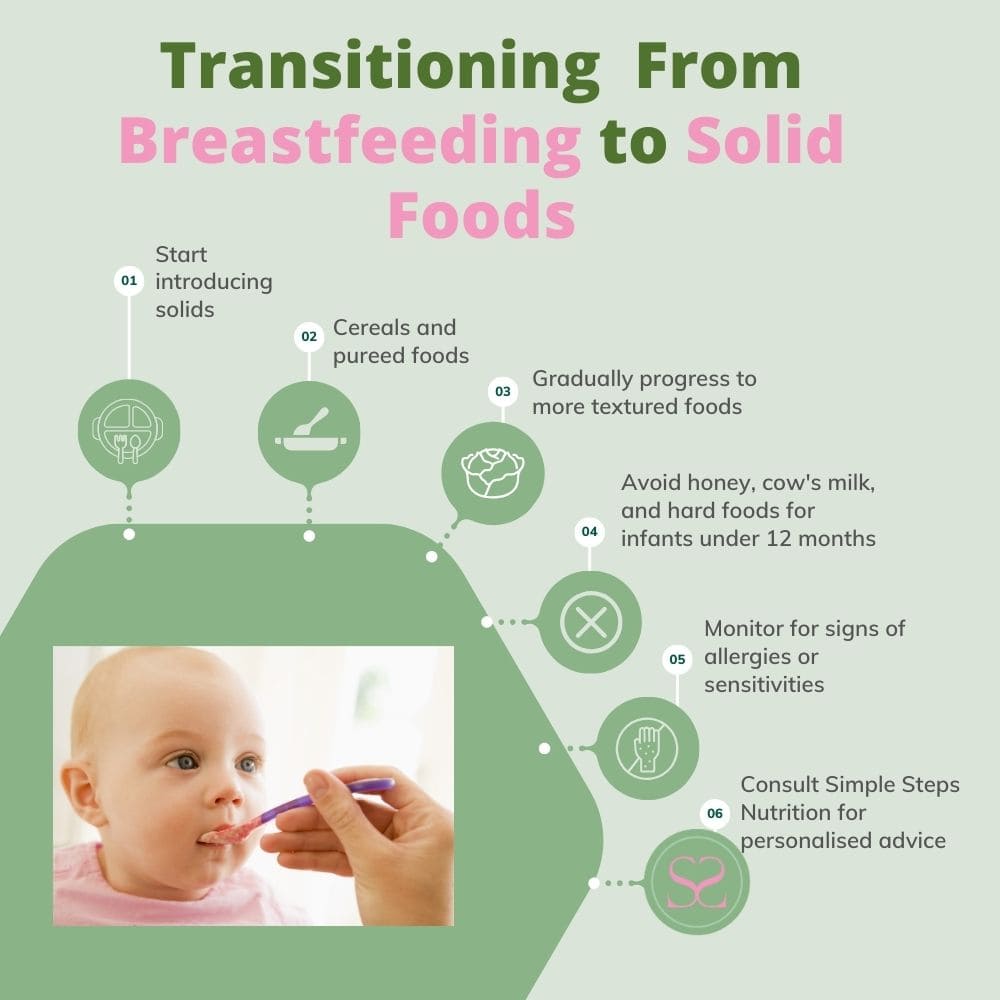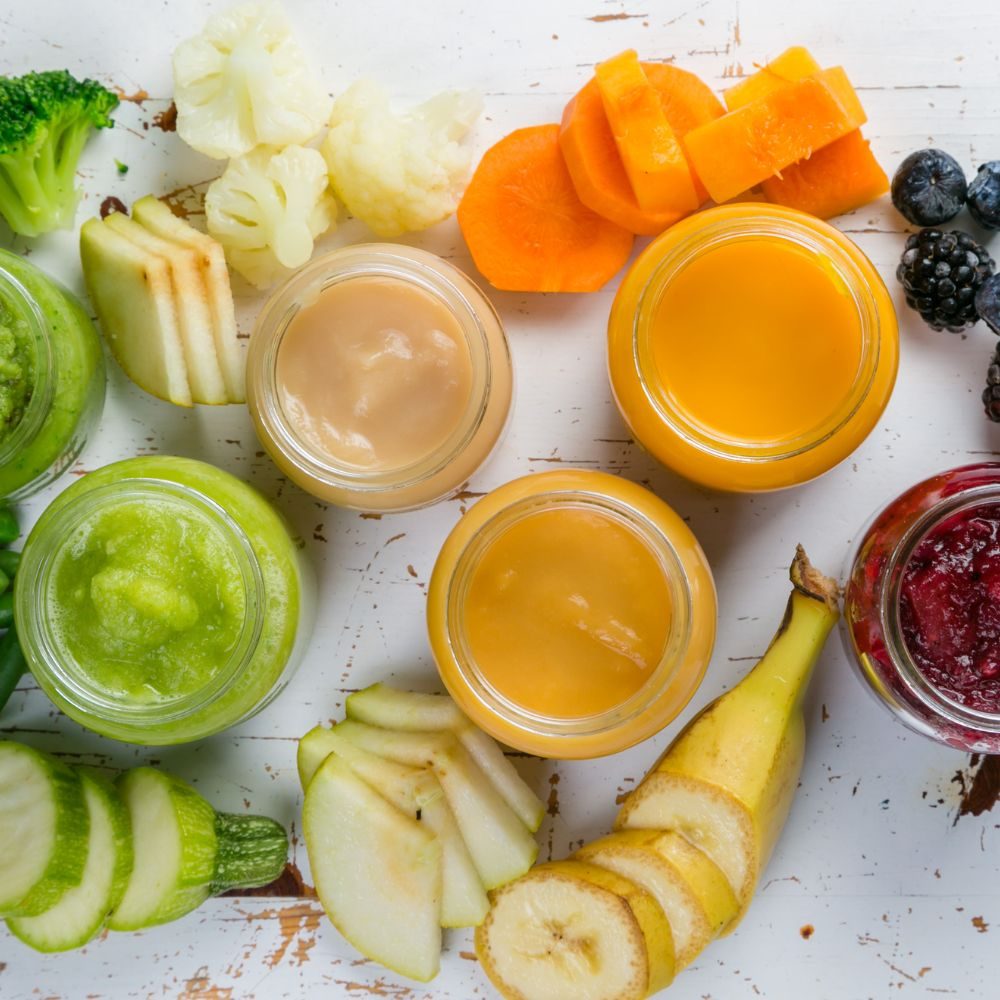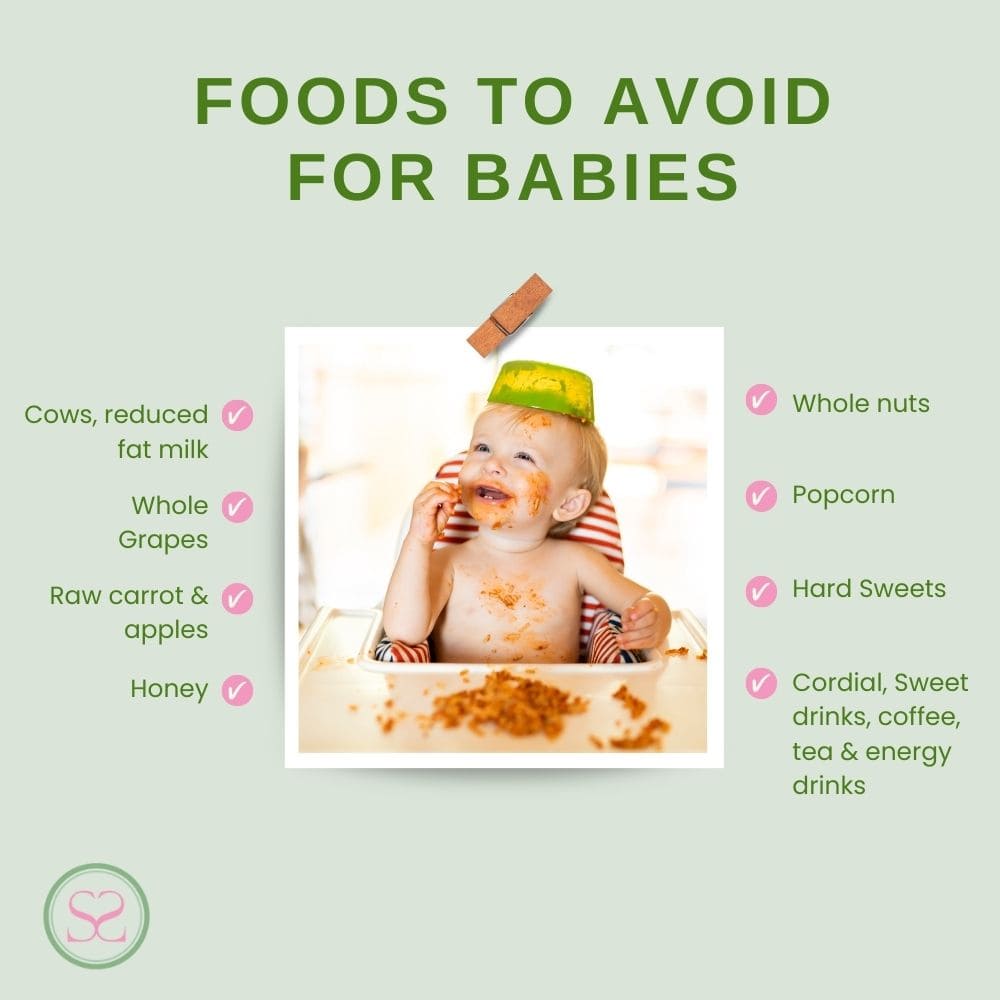Smoothly transition your baby from breastfeeding to solid foods to ensure optimal growth and development.
Key Facts
- The transition from breastfeeding to solid foods is a crucial stage in a child's development, requiring a gradual and attentive approach to ensure they receive the necessary nutrients for growth.
- Parents should introduce solid foods around the age of 6 months, starting with iron-fortified cereals, pureed meats, vegetables, and fruits, gradually progressing to more textured foods as the baby develops.
- Certain foods are not suitable for infants under 12 months, such as cow's milk as the main drink, honey, whole nuts, and hard fruits and vegetables.
- Consulting with healthcare professionals, such as the experts at Simple Steps Nutrition, can provide valuable guidance during this transition, ensuring the child's nutritional needs are met in the first 1000 days of life.
Transitioning from Breastfeeding to Solid Food
Transitioning from breastfeeding to solid foods is a pivotal moment in a child's development, marking a significant milestone that lays the groundwork for healthy eating habits. This transition is not just about introducing new flavours and textures; it is about providing essential nutrients that support the child's growth and development, especially during the crucial first 1000 days of life.
During this time, the child's brain and body are developing at an astonishing rate, and proper nutrition is critical to ensure that this development proceeds optimally. The introduction of solid foods complements breast milk, supplying the child with additional nutrients, such as iron, zinc, and essential vitamins, that are vital for cognitive development, immune function, and overall health.
This transition is also an opportunity for the child to develop motor skills as they learn to chew and swallow different textures, and it plays a role in shaping the child's palate and food preferences, which can have long-lasting implications for their dietary habits in the future. As such, understanding the challenges and best practices during this transition is essential for parents and caregivers to support their child's health and development during the first 1000 days of life and beyond.

Transitioning from Breastfeeding to Solid Food - When Should I Start the Transition?
The transition from breastfeeding or formula feeding to introducing solid foods is a significant milestone in a baby's first year of life. It is recommended to start introducing solid foods around the age of 6 months, as this is when babies typically require additional nutrients such as iron, zinc, and protein that are not sufficiently provided by breast milk or formula alone. Before 6 months, a baby's iron stores, which are built up while in the uterus, start to deplete. While the exact timing may vary from one baby to another, it is important to note that solid foods should not be introduced before 4 months of age. By 6 to 7 months, most babies will show signs of readiness for solid foods, such as the ability to sit upright in a highchair, showing interest in the food you are eating, and opening their mouth when offered a spoon. As you embark on this new journey with your baby, remember to be patient and follow your baby's lead, introducing new foods one at a time and paying attention to any signs of food allergies or sensitivities.
Why can't I give my baby solid foods before 6 months?
It is generally recommended that babies are exclusively breastfed or formula-fed for the first six months of life, as their digestive systems are not fully developed to process solid foods. Introducing solids too early can increase the risk of food allergies and sensitivities, as the baby's immune system is still maturing. Additionally, their kidneys are not yet ready to handle the extra load that solids can impose. Before six months, babies also lack the necessary motor skills to swallow solid foods properly, which can pose a choking hazard. Lastly, introducing solids too early can lead to a decrease in milk intake, depriving the baby of essential nutrients found in breast milk or formula. For these reasons, it is crucial to wait until your baby is developmentally ready, typically around six months, before introducing solid foods.


How will I know my baby is ready for solids?
You can look for several key signs to determine if your baby is ready to start solids. First, observe if your baby can hold their head up and sit up with minimal support, as these are essential motor skills needed for safe swallowing. Second, watch for an interest in food; your baby may begin to watch you eat or reach for your food. Another sign is the loss of the tongue-thrust reflex, which is a natural defence mechanism that pushes foreign objects out of the baby's mouth. If your baby can keep food in their mouth and move it to the back for swallowing, they may be ready for solids. Additionally, your baby should be showing signs of hunger more frequently or not seeming satisfied with milk feeds alone. Always consult with your paediatrician before introducing solids to ensure your baby is developmentally ready.
The Challenges of Transitioning from Breastfeeding to Solid Foods
Acceptance
The transition from the familiar taste and texture of breast milk to the unfamiliar world of solid foods can be challenging for some babies, especially those who were exclusively breastfed. The key for parents is to be patient and understanding, offering a variety of flavours and textures to help the baby adjust. Gradually introducing different types of solid foods, starting with purees and then moving on to mashed and finger foods as the baby becomes more comfortable, can make the process smoother and more appealing to the child.
Digestive System Readiness
A baby's digestive system is still developing and may not be ready to handle certain types of solid foods right away. It is important for parents to start with easily digestible foods, such as rice cereal, and gradually introduce other types of solid foods. Paying attention to the baby's reactions and giving their digestive system time to adjust is crucial. If a baby has a hard time digesting a particular food, it may be best to wait a few weeks before trying it again.


Allergies and Sensitivities
With the introduction of solid foods comes the risk of food allergies and sensitivities. Parents should introduce new foods one at a time and wait at least three to five days before introducing another new food. This will help parents identify any potential allergies or sensitivities. Signs to look out for include rashes, diarrhoea, or vomiting. If a baby shows any signs of an allergic reaction or sensitivity, parents should consult their paediatrician.
Nutritional Balance
Ensuring that a baby gets all the necessary nutrients from solid foods can be a challenge. Breast milk or formula should continue to be the primary source of nutrition until the baby is at least one year old. In addition to breast milk or formula, parents should offer a variety of nutrient-rich foods, such as fruits, vegetables, whole grains, and protein-rich foods like meats and legumes, to ensure that the baby gets a balanced diet.
How should I Start introducing Solid Foods?
When transitioning your baby from breastfeeding to solid foods, it is important to approach this new stage with informed and practical strategies. Introducing solid foods is a significant milestone in a baby's life and can impact their eating habits in the future. Therefore, it is crucial to establish a positive and enjoyable eating experience from the start. In this section, we will discuss the best practices for a smooth transition from breastfeeding to solid foods, providing practical tips and advice to make this transition as seamless as possible for both baby and parents. These best practices include a gradual introduction of new foods, optimal timing, the importance of patience and persistence, offering nutrient-rich foods, and the benefits of consulting with a nutritionist or healthcare professional.
Gradual Introduction
Introducing solid foods to a baby should be a slow and steady process. Starting with a single-ingredient puree or mashed food is a good place to begin. Foods such as rice cereal, pureed fruits, and vegetables are mild and easy on a baby's digestive system. Gradually introduce new foods and textures as the baby becomes more comfortable with eating solid foods.
Timing
Timing is crucial when introducing solid foods. The best time to introduce solid foods is when the baby is not too hungry or too full, and is in a good mood. A positive eating experience can be achieved by offering solid foods when the baby is most receptive and willing to try new foods.
Patience and Persistence
It is important for parents to be patient and persistent when introducing new foods. Some babies may initially reject new foods, but this doesn't mean they won't like them in the future. Keep offering new foods and encourage the baby to explore different flavours and textures. It may take several attempts before a baby accepts a new food.
Offer Nutrient-rich Foods
As breast milk or formula should still be the primary source of nutrition for a baby during the first year, it is important to supplement with nutrient-rich foods. Foods such as avocados, sweet potatoes, peas, and meats are packed with essential nutrients that support a baby's growth and development.
Consultation with a Nutritionist such as Simple Steps Nutrition
Consultation with healthcare professionals, such as a nutritionist or paediatrician, can provide valuable guidance during the transition to solid foods. Simple Steps Nutrition offers an excellent dietitian service focusing on the first 1000 days, for parents seeking personalised advice on how to ensure their baby is getting the right nutrients during this crucial stage of development. Our dietitians can provide tailored recommendations based on the baby's individual needs and preferences.
What are the best foods and textures to start with?
When introducing solids to your baby, it's important to offer a variety of healthy and nutritious foods that support their growth and development.
- Iron-fortified cereal
- Pureed or minced red or white meat, including fish
- Cooked vegetables, aiming to include a range of colours such as white, orange, green, and yellow
- Fruits, either cooked or mashed
- Cooked and mashed egg
- Dairy foods, such as unsweetened yoghurt and full-fat cheese
- Wholegrain bread, cereal, and pasta
Initially, your baby will only need a small amount of food, around one to two teaspoons. The process of opening their mouth, chewing, and swallowing is a new experience that will take time to master. Begin with pureed foods that have a smooth texture and are easy for your baby to swallow. Even without teeth, they will use their gums to "chew" their food. As your baby grows older, you can introduce foods with more texture to aid in jaw and speech development. Always consult with a healthcare professional for personalised advice.
Are there any Solid foods my baby shouldn't eat?
There are certain foods and drinks that are not suitable for infants and should be avoided:
- Cow's milk should not be used as their main milk drink before 12 months of age.
- Reduced-fat milk and unpasteurized milk or dairy foods.
- Whole grapes, raw carrots, raw apples or other hard fruits and vegetables as they can be choking hazards.
- Honey should be avoided as it can contain botulism spores, which are harmful to babies under 12 months.
- Whole nuts, popcorn, and hard sweets as they also pose choking risks.
- Cordial, soft drinks or sweet drinks as they are unhealthy and can contribute to tooth decay.
- Tea, coffee or energy drinks are not suitable for babies and should be avoided.
Always consult with a healthcare professional for personalised advice on your baby's diet.

Mastering the Transition From Breastfeeding to Solid Foods
Transitioning from breastfeeding to solid foods is a significant milestone in your baby's first year of life and plays a crucial role in their overall health and development. Ensuring a smooth and gradual transition is essential, and parents are encouraged to employ best practices and seek professional guidance when necessary.
Simple Steps Nutrition specialises in supporting parents and caregivers during the first 1000 days of a child's life, a crucial period that lays the foundation for a healthy future. Our expertise in infant and child nutrition can provide valuable insights and personalised advice to help you navigate this important journey with confidence. Trust in our knowledge and experience to guide you and your baby towards a happy and healthy eating experience.
Contact Information
Let us know how we can help you on your nutrition journey, whether you are trying to conceive, pregnant, or needing guidance for feeding your baby, toddler or young child. We look forward to meeting you and your growing family.
-
Phone Number
0409 155 629
-
Email Address
-
Location
1 / 240 Matcham Road, Matcham, Central Coast 2250
